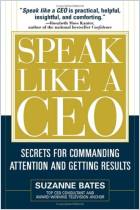Rejoignez getAbstract pour lire le résumé !

Rejoignez getAbstract pour lire le résumé !
Jerry Weissman
In the Line of Fire
How to Handle Tough Questions...When It Counts
FT Prentice Hall, 2005
Aperçu
Ever been asked a tough question and fumbled for an answer in front of a large audience? Never again.
Recommendation
Public speaking is considered one of the most threatening situations you can face in your job. Answering follow-up questions can be even more terrifying. Author Jerry Weissman, an experienced presentation coach, has written a short book to teach presenters specifically how to field tough, even hostile, questions without losing control. Using actual transcripts from presidential debates and press conferences, Weissman dissects the professionals’ answers to show how their responses succeeded or failed. This interesting technique provides Weissman with the material to introduce his straightforward response technique. With some practice, even the most timid presenter should gain some confidence. So without waiting for you to ask any tough questions, getAbstract.com finds this little book helpful for CEOs, executives and managers who face tough questions from analysts, regulators, investors, competitors or the press. You’ll discover it’s not so much the answer you give that really matters, but how you give it.
Summary
About the Author
Jerry Weissman is a leading corporate communications coach. He is also the author of Presenting to Win: The Art of Telling Your Story. He works with Power Presentations in Foster City, California.




















Comment on this summary